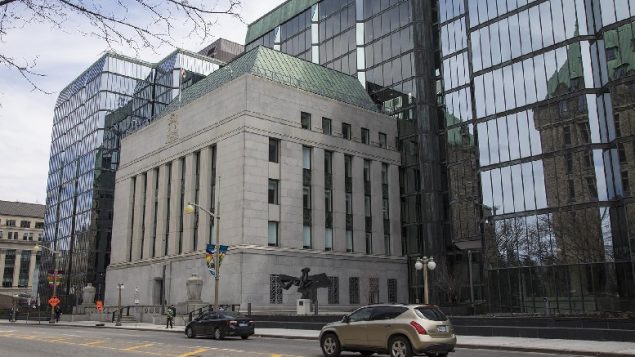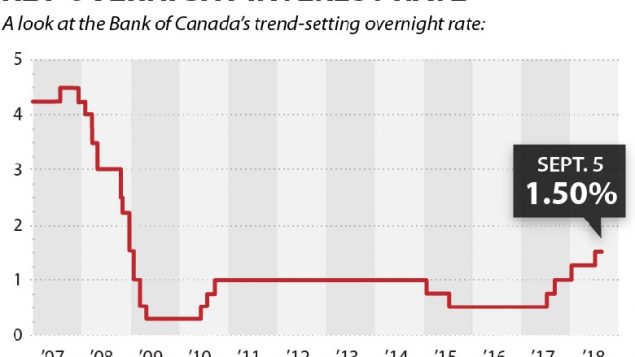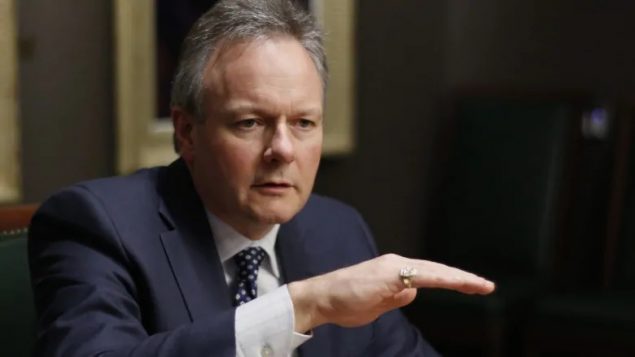After a lengthy and almost unprecedented level of low interest rates, Canada’s central bank had begun a slow hike in rates. This comes as the economy begins to recover and inflation has risen to about 3%. However, the Central bank has decided to hold its rate steady at 1.5 per cent
The Central Bank rate affects what consumers pay at commercial banks for loans, mortgages, and other financial services.

The odd clash of architectural styles of the Bank of Canada, headquarters in the national capital , Ottawa. (Bank of Canada)
An increase in the central bank rate comes in an effort to cool the economy and inflation, while a decrease is warranted to stimulate the economy.
After near record lows in 2008 and 2009 of 0.2 and 0.5 per cent during a serious near world-wide economic downturn, the rate was increased to 1.0 per cent, then lowered again in 2010 to cope with a oil crisis.
Since then there have been tiny incremental steps to 1.5 per cent, where it will remain for the time being.
Since the economy is doing well and inflation is up, there was speculation that the Central bank would increase it’s rate this week but Bank of Canada governor Stephen Poloz said uncertainty over the North American Free Trade Talks has suggested they should opt for caution for the moment.
A trade dispute or substantial U.S tariffs could result in the bank having to reverse course if it increased rates now.

Historic look at Central Bank lending rates.
(Bank of Canada- Canadian Press via CBC)
Within the Group of Seven, (G7) countries, ony the U.S. currently has a higher interest rate than Canada.
It is generally expected however, that Poloz will announce an increase on October 24 when it releases its next quarterly forecast.
Argentina currently has the world’s highest interest rate at 60% followed by Turkey at 17.75 %, and then Mexico at 7.75%. Australia, Canada, and South Korea are all at 1.5%. The U.K is at 0.75%, while EU countries are at 0.0%







For reasons beyond our control, and for an undetermined period of time, our comment section is now closed. However, our social networks remain open to your contributions.